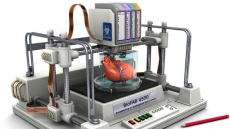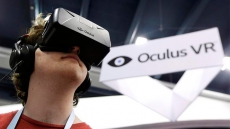In a first, an Indian-origin researcher from the University of Manchester has created a biosensor that can help machines smell the way humans do.
The new generation of biosensors with an acute ability to sniff out problems can help machines smell when food has gone bad or how much pollution is in the atmosphere.
"It has been challenging to get machines to be able to differentiate between smells that are mirror images of each other, which was a real barrier to creating machines which are able to smell as well or better than humans," explained professor Krishna Persaud, lead author of the paper.
To develop the biosensor, Persaud along with colleagues from University of Bari in Italy utilised an odourant-binding protein.
Such proteins are found in the mucus of the nose which work olfactory receptors helping us to create our perception of smell.
The team has found a method of manufacturing these proteins in quantities that would allow them to be used in biosensors.
Using a type of transistor incorporating these proteins, the scientists were able to measure the unique changes in current as the proteins reacted to odours and record them.
This is, in effect, the machine smelling the odour and then sending the message which can then be decoded.
The system is incredibly sensitive with a detection limit that approaches that of the human nose.
"We have produced a new chemical sensor platform. It will allow much better sensors to be developed and these could have many uses in industry," Persaud added.
The findings were published in the journal Nature Communications.






